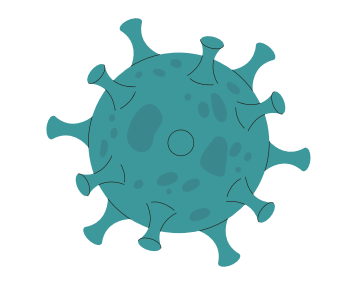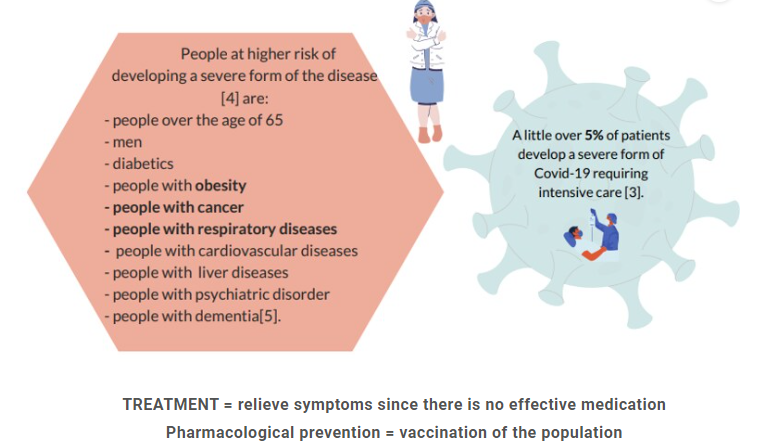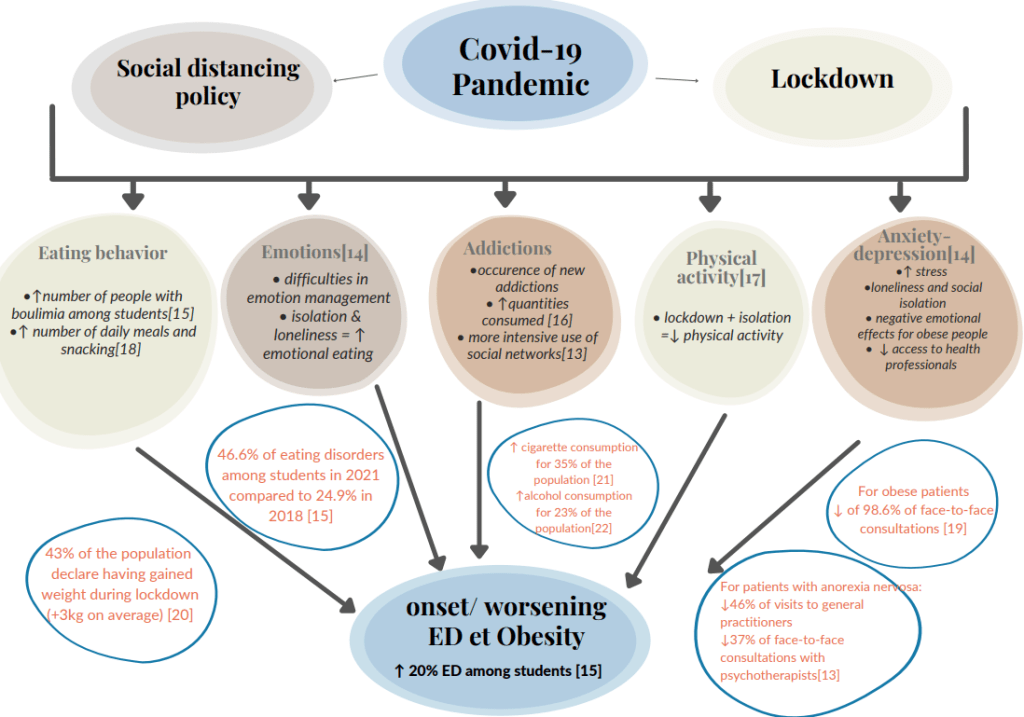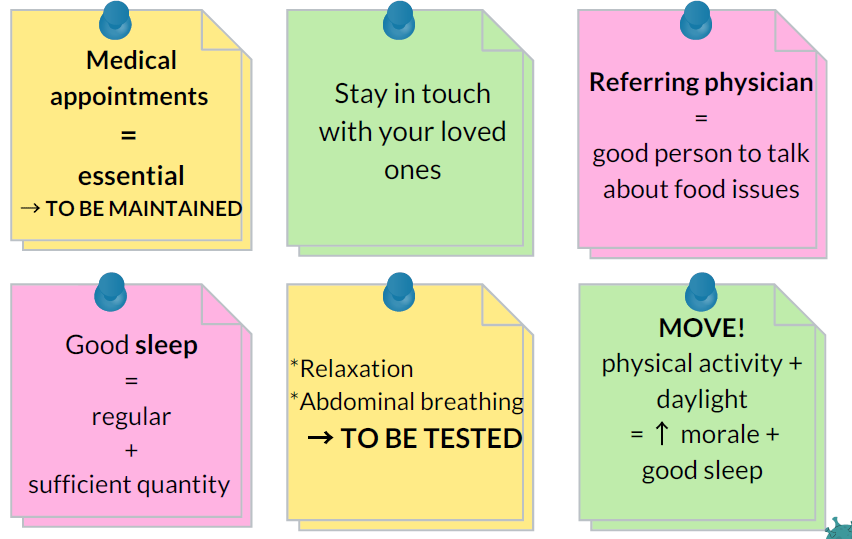Eating Disorders, Obesity And Covid-19
Source : Nutriactis/Rouen-Normandie hospital
Summary
- What is COVID-19 ?
- COVID-19 severity in obese patients
- Impact de la Covid-19 dans les TCA et l’obésité
- Conclusion

What is COVID-19 ?
Covid-19 is a respiratory infectious disease which appeared in 2019 in China, caused by SARS-cov-2 virus (Severe Acute Respiratory Syndrome-coronavirus-2). To infect the organism, SARS-cov-2 virus binds to a protein called ACE2 receptor, which is located on the surface of cells (such as adipose tissu), involved in some pulmonary, cardiac and renal functions. The time between virus infection and possible contagion is 5 to 8 days. The main symptoms are fever, cough, breathing difficulties and muscular pain. The proportion of asymptomatic persons, i.e positive without symptoms, is difficult to evaluate (20 to 50%).

COVID-19 severity in obese patients
- Obese patients are not only more likely to be infected by the virus, but are also at higher risk of developing a severe form of the disease.
- Infection risk is increased among obese patients because, in other reasons, they have more adipose tissu, so more ACE2 receptors presenting additional entry points for the virus. Also, altered respiratory capacity, inflammation, hypercoagulability, as well as modified immune response and microbiota justify the higher risk of severe form. Finally obese patients have higher risk of being admitted in intensive care unit after Covid-19 infection, particularly in relation to acute respiratory distress; and a higher risk of complications and mortality.
COVID-19’s impact in eating disorders and obesity
The global pandemic of Covid-19 has had an economic, social and health impact on the population; particularly on mental health. The anxiety inducing climate associated to new life conditions, food insecurity, increased use of social networks, disruption of daily routines, as well as more difficult access to health professionals increase the risk of anxiety/depression which are perpetuating factors of eating disorders

Conclusion
The World Health Organization (WHO) recommended preventive measures since the beginning of the pandemic in order to limit contamination. These help to contain the pandemic, even if some of them have a negative impact on people’s mental health.Access to care has been disrupted, particularly en 2020, et the telemedecine has grown considerably. This solution seems to maintain care for vulnerable people and promote access to care.
ADVICE:
